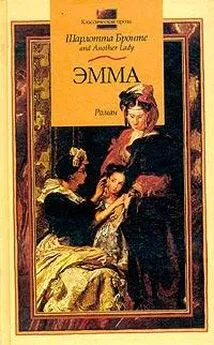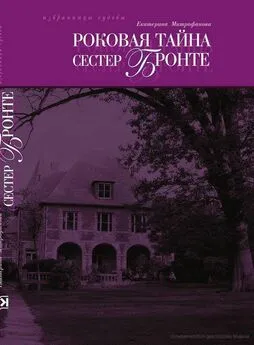Шарлотта Бронте - Лучшие романы сестер Бронте / The best of the Brontë sisters
- Название:Лучшие романы сестер Бронте / The best of the Brontë sisters
- Автор:
- Жанр:
- Издательство:Литагент «Эксмо»334eb225-f845-102a-9d2a-1f07c3bd69d8
- Год:2013
- Город:Москва
- ISBN:978-5-699-61892-7
- Рейтинг:
- Избранное:Добавить в избранное
-
Отзывы:
-
Ваша оценка:
Шарлотта Бронте - Лучшие романы сестер Бронте / The best of the Brontë sisters краткое содержание
«Иностранный язык: учимся у классиков» – это только оригинальные тексты лучших произведений мировой литературы. Эти книги станут эффективным и увлекательным пособием для изучающих иностранный язык на хорошем «продолжающем» и «продвинутом» уровне. Они помогут эффективно расширить словарный запас, подскажут, где и как правильно употреблять устойчивые выражения и грамматические конструкции, просто подарят радость от чтения. В конце книги дана краткая информация о культуроведческих, страноведческих, исторических и географических реалиях описываемого периода, которая поможет лучше ориентироваться в тексте произведения.
Серия «Иностранный язык: учимся у классиков» адресована широкому кругу читателей, хорошо владеющих английским языком и стремящихся к его совершенствованию.
Лучшие романы сестер Бронте / The best of the Brontë sisters - читать онлайн бесплатно ознакомительный отрывок
Интервал:
Закладка:
“My brother in the interval was dead, and at the end of the four years my father died too. I was rich enough now – yet poor to hideous indigence: a nature the most gross, impure, depraved I ever saw, was associated with mine, and called by the law and by society a part of me. And I could not rid myself of it by any legal proceedings: for the doctors now discovered that my wife was mad – her excesses had prematurely developed the germs of insanity. Jane, you don’t like my narrative; you look almost sick – shall I defer the rest to another day?”
“No, sir, finish it now; I pity you – I do earnestly pity you.”
“Pity, Jane, from some people is a noxious and insulting sort of tribute, which one is justified in hurling back in the teeth of those who offer it; but that is the sort of pity native to callous, selfish hearts; it is a hybrid, egotistical pain at hearing of woes, crossed with ignorant contempt for those who have endured them. But that is not your pity, Jane; it is not the feeling of which your whole face is full at this moment – with which your eyes are now almost overflowing – with which your heart is heaving – with which your hand is trembling in mine. Your pity, my darling, is the suffering mother of love: its anguish is the very natal pang of the divine passion. I accept it, Jane; let the daughter have free advent – my arms wait to receive her.”
“Now, sir, proceed; what did you do when you found she was mad?”
“Jane, I approached the verge of despair; a remnant of self-respect was all that intervened between me and the gulf. In the eyes of the world, I was doubtless covered with grimy dishonour; but I resolved to be clean in my own sight – and to the last I repudiated the contamination of her crimes, and wrenched myself from connection with her mental defects. Still, society associated my name and person with hers; I yet saw her and heard her daily: something of her breath (faugh!) mixed with the air I breathed; and besides, I remembered I had once been her husband – that recollection was then, and is now, inexpressibly odious to me; moreover, I knew that while she lived I could never be the husband of another and better wife; and, though five years my senior (her family and her father had lied to me even in the particular of her age), she was likely to live as long as I, being as robust in frame as she was infirm in mind. Thus, at the age of twenty-six, I was hopeless.
“One night I had been awakened by her yells – (since the medical men had pronounced her mad, she had, of course, been shut up) – it was a fiery West Indian night; one of the description that frequently precede the hurricanes of those climates. Being unable to sleep in bed, I got up and opened the window. The air was like sulphur-steams – I could find no refreshment anywhere. Mosquitoes came buzzing in and hummed sullenly round the room; the sea, which I could hear from thence, rumbled dull like an earthquake – black clouds were casting up over it; the moon was setting in the waves, broad and red, like a hot cannon-ball – she threw her last bloody glance over a world quivering with the ferment of tempest. I was physically influenced by the atmosphere and scene, and my ears were filled with the curses the maniac still shrieked out; wherein she momentarily mingled my name with such a tone of demon-hate, with such language! – no professed harlot ever had a fouler vocabulary than she: though two rooms off, I heard every word – the thin partitions of the West India house opposing but slight obstruction to her wolfish cries.
“‘This life,’ said I at last, ‘is hell: this is the air – those are the sounds of the bottomless pit! I have a right to deliver myself from it if I can. The sufferings of this mortal state will leave me with the heavy flesh that now cumbers my soul. Of the fanatic’s burning eternity I have no fear: there is not a future state worse than this present one – let me break away, and go home to God!’
“I said this whilst I knelt down at, and unlocked a trunk which contained a brace of loaded pistols: I mean to shoot myself. I only entertained the intention for a moment; for, not being insane, the crisis of exquisite and unalloyed despair, which had originated the wish and design of self-destruction, was past in a second.
“A wind fresh from Europe blew over the ocean and rushed through the open casement: the storm broke, streamed, thundered, blazed, and the air grew pure. I then framed and fixed a resolution. While I walked under the dripping orange-trees of my wet garden, and amongst its drenched pomegranates and pine-apples, and while the refulgent dawn of the tropics kindled round me – I reasoned thus, Jane – and now listen; for it was true Wisdom that consoled me in that hour, and showed me the right path to follow.
“The sweet wind from Europe was still whispering in the refreshed leaves, and the Atlantic was thundering in glorious liberty; my heart, dried up and scorched for a long time, swelled to the tone, and filled with living blood – my being longed for renewal – my soul thirsted for a pure draught. I saw hope revive – and felt regeneration possible. From a flowery arch at the bottom of my garden I gazed over the sea – bluer than the sky: the old world was beyond; clear prospects opened thus: –
“‘Go,’ said Hope, ‘and live again in Europe: there it is not known what a sullied name you bear, nor what a filthy burden is bound to you. You may take the maniac with you to England; confine her with due attendance and precautions at Thornfield: then travel yourself to what clime you will, and form what new tie you like. That woman, who has so abused your long-suffering, so sullied your name, so outraged your honour, so blighted your youth, is not your wife, nor are you her husband. See that she is cared for as her condition demands, and you have done all that God and humanity require of you. Let her identity, her connection with yourself, be buried in oblivion: you are bound to impart them to no living being. Place her in safety and comfort: shelter her degradation with secrecy, and leave her.’
“I acted precisely on this suggestion. My father and brother had not made my marriage known to their acquaintance; because, in the very first letter I wrote to apprise them of the union – having already begun to experience extreme disgust of its consequences, and, from the family character and constitution, seeing a hideous future opening to me – I added an urgent charge to keep it secret: and very soon the infamous conduct of the wife my father had selected for me was such as to make him blush to own her as his daughter-in-law. Far from desiring to publish the connection, he became as anxious to conceal it as myself.
“To England, then, I conveyed her; a fearful voyage I had with such a monster in the vessel. Glad was I when I at last got her to Thornfield, and saw her safely lodged in that third-storey room, of whose secret inner cabinet she has now for ten years made a wild beast’s den – a goblin’s cell. I had some trouble in finding an attendant for her, as it was necessary to select one on whose fidelity dependence could be placed; for her ravings would inevitably betray my secret: besides, she had lucid intervals of days – sometimes weeks – which she filled up with abuse of me. At last I hired Grace Poole from the Grimbsy Retreat. She and the surgeon, Carter (who dressed Mason’s wounds that night he was stabbed and worried), are the only two I have ever admitted to my confidence. Mrs. Fairfax may indeed have suspected something, but she could have gained no precise knowledge as to facts. Grace has, on the whole, proved a good keeper; though, owing partly to a fault of her own, of which it appears nothing can cure her, and which is incident to her harassing profession, her vigilance has been more than once lulled and baffled. The lunatic is both cunning and malignant; she has never failed to take advantage of her guardian’s temporary lapses; once to secrete the knife with which she stabbed her brother, and twice to possess herself of the key of her cell, and issue therefrom in the night-time. On the first of these occasions, she perpetrated the attempt to burn me in my bed; on the second, she paid that ghastly visit to you. I thank Providence, who watched over you, that she then spent her fury on your wedding apparel, which perhaps brought back vague reminiscences of her own bridal days: but on what might have happened, I cannot endure to reflect. When I think of the thing which flew at my throat this morning, hanging its black and scarlet visage over the nest of my dove, my blood curdles – ”
“And what, sir,” I asked, while he paused, “did you do when you had settled her here? Where did you go?”
“What did I do, Jane? I transformed myself into a will-o’-the-wisp. Where did I go? I pursued wanderings as wild as those of the March-spirit. I sought the Continent, and went devious through all its lands. My fixed desire was to seek and find a good and intelligent woman, whom I could love: a contrast to the fury I left at Thornfield – ”
“But you could not marry, sir.”
“I had determined and was convinced that I could and ought. It was not my original intention to deceive, as I have deceived you. I meant to tell my tale plainly, and make my proposals openly: and it appeared to me so absolutely rational that I should be considered free to love and be loved, I never doubted some woman might be found willing and able to understand my case and accept me, in spite of the curse with which I was burdened.”
“Well, sir?”
“When you are inquisitive, Jane, you always make me smile. You open your eyes like an eager bird, and make every now and then a restless movement, as if answers in speech did not flow fast enough for you, and you wanted to read the tablet of one’s heart. But before I go on, tell me what you mean by your ‘Well, sir?’ It is a small phrase very frequent with you; and which many a time has drawn me on and on through interminable talk: I don’t very well know why.”
“I mean, – What next? How did you proceed? What came of such an event?”
“Precisely! and what do you wish to know now?”
“Whether you found any one you liked: whether you asked her to marry you; and what she said.”
“I can tell you whether I found any one I liked, and whether I asked her to marry me: but what she said is yet to be recorded in the book of Fate. For ten long years I roved about, living first in one capital, then another: sometimes in St. Petersburg; oftener in Paris; occasionally in Rome, Naples, and Florence. Provided with plenty of money and the passport of an old name, I could choose my own society: no circles were closed against me. I sought my ideal of a woman amongst English ladies, French countesses, Italian signoras, and German gräfinnen. I could not find her. Sometimes, for a fleeting moment, I thought I caught a glance, heard a tone, beheld a form, which announced the realisation of my dream: but I was presently undeserved. You are not to suppose that I desired perfection, either of mind or person. I longed only for what suited me – for the antipodes of the Creole: and I longed vainly. Amongst them all I found not one whom, had I been ever so free, I – warned as I was of the risks, the horrors, the loathings of incongruous unions – would have asked to marry me. Disappointment made me reckless. I tried dissipation – never debauchery: that I hated, and hate. That was my Indian Messalina’s attribute: rooted disgust at it and her restrained me much, even in pleasure. Any enjoyment that bordered on riot seemed to approach me to her and her vices, and I eschewed it.
“Yet I could not live alone; so I tried the companionship of mistresses. The first I chose was Céline Varens – another of those steps which make a man spurn himself when he recalls them. You already know what she was, and how my liaison with her terminated. She had two successors: an Italian, Giacinta, and a German, Clara; both considered singularly handsome. What was their beauty to me in a few weeks? Giacinta was unprincipled and violent: I tired of her in three months. Clara was honest and quiet; but heavy, mindless, and unimpressible: not one whit to my taste. I was glad to give her a sufficient sum to set her up in a good line of business, and so get decently rid of her. But, Jane, I see by your face you are not forming a very favourable opinion of me just now. You think me an unfeeling, loose-principled rake: don’t you?”
Читать дальшеИнтервал:
Закладка:










